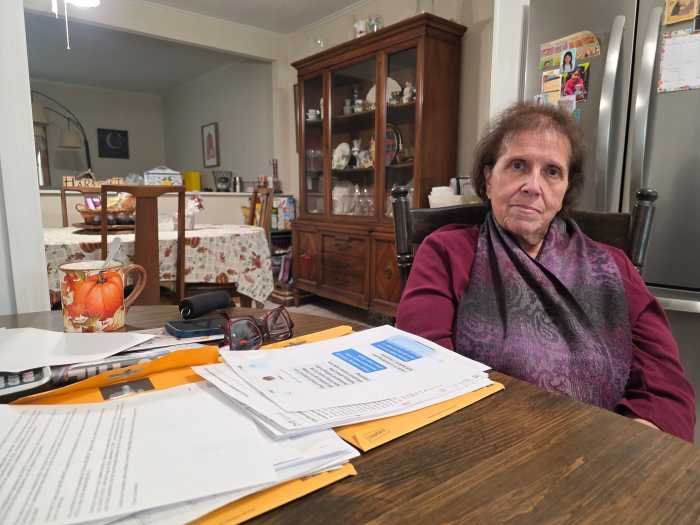NJ Supremes find dead gay man intended estate to pay off mortgage
The New Jersey Supreme Court has ruled that the will of Theodore M. Payne, who died in 2002, should be interpreted to require his estate to pay off the mortgage and real estate taxes on a house in Harding Township that he left to his domestic partner, Don Burton.
Reversing rulings by two lower courts, the state Supreme Court rejected an argument by Payne’s executor that the will leaves the property to Burton “as is,” with full responsibility for paying off the mortgage and taxes, a result that would have required the surviving partner to sell the house in which he is living.
The 6-1 ruling, issued on April 20 in an opinion for the court by Justice John E. Wallace, Jr., interpreted Payne’s “probable intent” to determine what he aimed to accomplish but expressed imperfectly in his will.
Dissenting Justice Roberto A. Rivera-Soto disagreed with this interpretation, contending that enlarging the bequest to Burton comes at the expense of other beneficiaries mentioned in the will.
Payne and Burton met in 1997, when both men were living with AIDS. Payne was a finance professional at Metropolitan Life Insurance Company, but Burton was disabled and not working. The two men lived together in Payne’s house until he sold it the following year, at which time he purchased the Harding Township home where they lived since.
Payne also owned a summer vacation house in Harpswell, Maine, held jointly with a former partner and business associate, Rick Wohlfarth. Payne’s agreement with Wohlfarth was that each man would provide for the payment of the mortgage and taxes on that house in his will in the event he pre-deceased the other. Attorney Jack Wolff prepared Payne’s will to accomplish this end.
In 1998, Payne contacted Wolff to revise his will, adding a bequest to Burton of the newly purchased New Jersey house. Burton testified that in several conversations Payne said he intended to leave him the house clear of mortgage and tax obligations, since Burton did not have resources to pay those on his own. Burton claims that a letter Payne wrote to Wolff concerning revisions to the draft will on November 11, 2001, intended to communicate Payne’s intent on this point, appeared to have been misinterpreted by the attorney. That point was heavily contested in the lawsuit.
What was not contested was that Payne specifically asked Wolff to change the reference to Burton in the will from “friend” to “partner,” which was done.
Payne and his attorney went through a number of drafts of the revised will, but by the time a final version was ready for execution in March 2002, the client was already hospitalized for what turned out to be the last time. On Burton’s instructions, Wolff brought the papers to the hospital, and after satisfying himself that Payne was lucid enough to execute the documents, which also included a living will and a power of attorney designating Burton to act on his behalf, Payne signed the documents. He lapsed into a coma the next day and died several weeks later without regaining consciousness.
The will appointed Daulton Lewis, an attorney who had done work for Rick Wohlfarth, Payne’s former partner, as executor of the estate. Lewis, whose daughter was a named beneficiary under the will, took the position that Wohlfarth would inherit the Maine vacation house free of mortgage or taxes, which would be paid from the estate, but that Burton’s inheritance of the New Jersey house was “as is,” because Payne had not included a specific direction indicating otherwise.
Burton pointed to the November 11 letter, which he claimed indicated that Payne wanted him to inherit the house clear of any financial obligations, and a provision in the will authorizing the estate to pay all of Payne’s “just debts,” which Burton argued included the remaining mortgage and taxes on the house.
The battle was joined when Lewis rejected that argument.
The trial court ruled for the estate, finding no clear expression of Payne’s intent to have the other beneficiaries lose part or all of their bequests so Burton could inherit unencumbered property, and the appellate division affirmed.
The Supreme Court majority, however, concluded that this was an appropriate case to look for “probable intent,” given the ambiguities raised by the November 11 letter.
“Burton argues that the court failed to consider that the common human impulse is to make appropriate provisions for one’s spouse and that same-sex couples are entitled to that reasonable inference,” Justice Wallace wrote.
The court never mentioned this specific argument again in the opinion, instead focusing on the text of the November 11 letter to conclude that its most logical interpretation was that Payne aimed to communicate to his lawyer that the mortgage and taxes on the property he shared with Burton were to be considered debts of his estate.
Significantly, Payne died two years before a Domestic Partnership law was enacted in New Jersey, under which Payne and Burton could have registered as partners and avoided some of these problems. Nonetheless, the fact that Burton had to litigate to the state Supreme Court in order to protect the inheritance from his partner shows the continuing importance of careful estate planning for same-sex couples.
Dennis T. Smith, a Hackensack attorney from the firm of Pashman Stein, argued Burton’s appeal, and was joined by Michael S. Stein in writing the brief to the court.
gaycitynews.com


































